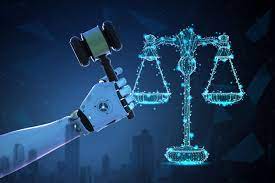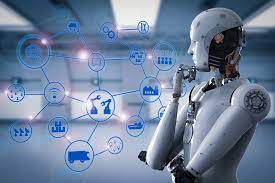Artificial intelligence (AI) and robotics are rapidly transforming the way we live and work. From self-driving cars to intelligent virtual assistants, AI and robotics are creating new opportunities and efficiencies in many industries. However, with these technological advances come new ethical challenges and considerations. In this article, we will explore the ethics of AI and robotics, and the potential impacts on society and the global economy.
The Need for Ethical Guidelines
As AI and robotics become more advanced, it is becoming increasingly important to establish ethical guidelines for their use. This includes guidelines for the development, deployment, and use of AI and robotics, as well as guidelines for their impact on society and the environment. Ethical guidelines can help to ensure that these technologies are developed and used in a responsible and ethical manner, and can help to mitigate the risks and challenges associated with their use.
The Risks and Challenges of AI and Robotics
AI and robotics present a wide range of risks and challenges for society and the global economy. These include:
Job displacement and unemployment: As AI and robotics automate more tasks, there is a risk of job displacement and unemployment, particularly in industries such as manufacturing and transportation.
Bias and discrimination: AI and robotics can perpetuate bias and discrimination, particularly if they are programmed using biased data or algorithms.
Privacy and security: AI and robotics can collect and process large amounts of data, raising concerns about privacy and security.
Safety and reliability: AI and robotics can pose risks to safety and reliability, particularly if they are not properly tested or maintained.
The Importance of Transparency and Accountability
To address these risks and challenges, it is important to establish transparency and accountability in the development and use of AI and robotics. This includes ensuring that these technologies are developed and used in a transparent and accountable manner, and that their impact on society and the environment is carefully monitored and evaluated. This can help to ensure that AI and robotics are developed and used in a responsible and ethical manner, and can help to mitigate the risks and challenges associated with their use.

The Role of Governments and Regulatory Bodies
Governments and regulatory bodies have an important role to play in promoting the ethical and responsible use of AI and robotics. This includes establishing ethical guidelines and standards for the development and use of these technologies, as well as ensuring that these guidelines and standards are enforced. Governments and regulatory bodies can also invest in research and development of AI and robotics, and can promote the development of new technologies that are safe, reliable, and sustainable.
The Importance of Public Engagement and Education
Public engagement and education are also important for promoting the ethical and responsible use of AI and robotics. This includes engaging with the public and stakeholders to ensure that their concerns and perspectives are taken into account in the development and use of these technologies. It also includes educating the public about the risks and benefits of AI and robotics, and promoting public dialogue and debate about their impact on society and the global economy.
The ethics of AI and robotics are complex and multifaceted, and will require ongoing attention and consideration in the years to come. To ensure that these technologies are developed and used in a responsible and ethical manner, it is important to establish ethical guidelines and standards, promote transparency and accountability, involve governments and regulatory bodies, and engage the public and stakeholders.
By working together to address the risks and challenges of AI and robotics, we can ensure that these technologies are used to benefit society and the global economy, and that their impact is carefully monitored and evaluated. With diligence and preparation, individuals and organizations can build a better future for themselves and for society as a whole.
Additional Tips for Promoting Ethical and Responsible Use of AI and Robotics

Establish Ethical Guidelines and Standards
To promote the ethical and responsible use of AI and robotics, it is important to establish ethical guidelines and standards for their development and use. This can help to ensure that these technologies are developed and used in a responsible and ethical manner, and can help to mitigate the risks and challenges associated with their use.
Promote Transparency and Accountability
Transparency and accountability are essential for promoting the ethical and responsible use of AI and robotics. This includes ensuring that these technologies are developed and used in a transparent and accountable manner, and that their impact on society and the environment is carefully monitored and evaluated. This can help to ensure that AI and robotics are developed and used in a responsible and ethical manner, and can help to mitigate the risks and challenges associated with their use.
Involve Governments and Regulatory Bodies
Governments and regulatory bodies have an important role to play in promoting the ethical and responsible use of AI and robotics. This includes establishing ethical guidelines and standards for the development and use of these technologies, as well as ensuring that these guidelines and standards are enforced. Governments and regulatory bodies can also invest in research and development of AI and robotics, and can promote the development of new technologies that are safe, reliable, and sustainable.
Engage the Public and Stakeholders
Public engagement and education are also important for promoting the ethical and responsible use of AI and robotics. This includes engaging with the public and stakeholders to ensure that their concerns and perspectives are taken into account in the development and use of these technologies. It also includes educating the public about the risks and benefits of AI and robotics, and promoting public dialogue and debate about their impact on society and the global economy.
Develop Ethical AI and Robotics
Developing AI and robotics that are ethical and responsible is essential for promoting their ethical and responsible use. This includes developing technologies that are safe, reliable, and sustainable, and that are designed to benefit society and the global economy. It also includes developing technologies that are transparent and accountable, and that are programmed using unbiased data and algorithms.
Foster Collaboration and Innovation
Collaboration and innovation are also important for promoting the ethical and responsible use of AI and robotics. This includes fostering collaboration between researchers, developers, and stakeholders, and promoting innovation in the development and use of these technologies. By working together to develop and use AI and robotics in an ethical and responsible manner, we can ensure that these technologies are used to benefit society and the global economy, and that their impact is carefully monitored and evaluated.
Conclusion
The ethics of AI and robotics are complex and multifaceted, and will require ongoing attention and consideration in the years to come. To ensure that these technologies are developed and used in a responsible and ethical manner, it is important to establish ethical guidelines and standards, promote transparency and accountability, involve governments and regulatory bodies, engage the public and stakeholders, develop ethical AI and robotics, and foster collaboration and innovation.
By working together to address the risks and challenges of AI and robotics, we can ensure that these technologies are used to benefit society and the global economy, and that their impact is carefully monitored and evaluated. With diligence and preparation, individuals and organizations can build a better future for themselves and for society as a whole.
















